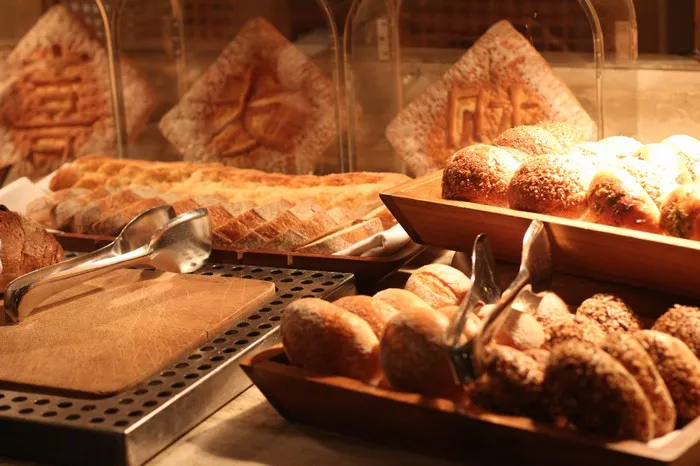In the bustling world of franchising, where opportunities are plentiful and risks abound, choosing the right brand can be a pivotal decision for aspiring entrepreneurs. Among the myriad options available, Wenzel Bakery stands out as a beacon of excellence in the realm of baked goods. With its rich heritage, delectable offerings, and robust support system, Wenzel Bakery presents a compelling opportunity for individuals seeking to delve into the world of franchising. In this article, we delve into a comprehensive cost analysis of Wenzel Bakery franchise, elucidating the initial investment, ongoing expenses, financial projections, and return on investment (ROI) associated with this esteemed brand.
Wenzel Bakery Brand Introduction
Established in 1975, Wenzel Bakery has carved a niche for itself in the competitive landscape of the bakery industry. With a steadfast commitment to quality, innovation, and customer satisfaction, the brand has garnered a loyal following over the decades. Wenzel Bakery’s product portfolio encompasses an array of freshly baked goods, including artisan bread, pastries, sandwiches, and cakes, crafted with precision using premium ingredients. The brand’s emphasis on authenticity and craftsmanship has earned it a sterling reputation among discerning consumers, positioning it as a beloved fixture in communities across the globe.
At the heart of Wenzel Bakery’s success lies its unwavering dedication to excellence and its franchise model, which empowers aspiring entrepreneurs to partake in its storied legacy while leveraging its proven business framework.
Wenzel Bakery Franchise Initial Investment
Embarking on a journey with Wenzel Bakery necessitates an initial investment commensurate with the brand’s stature and potential for success. The initial investment for a Wenzel Bakery franchise typically ranges from $150,000 to $300,000, inclusive of franchise fees, equipment procurement, leasehold improvements, and other startup expenses. This initial investment grants franchisees access to a comprehensive support system, encompassing site selection assistance, store design and construction guidance, comprehensive training programs, and ongoing operational support.
It is imperative for prospective franchisees to conduct due diligence and assess their financial capabilities to ensure they can meet the initial investment requirements and embark on their entrepreneurial venture with confidence.
Wenzel Bakery Franchise Ongoing Expenses
Beyond the initial investment, operating a Wenzel Bakery franchise entails ongoing expenses that must be factored into the financial equation. These ongoing expenses encompass a spectrum of operational costs, including but not limited to:
1. Royalty Fees: As a franchisee, ongoing royalty fees are payable to Wenzel Bakery, typically calculated as a percentage of gross sales. This fee grants franchisees continued access to the brand name, trademarks, and ongoing support services.
2. Marketing Fees: Contributing to a collective marketing fund is a common practice among franchisors, enabling the brand to execute comprehensive marketing initiatives aimed at driving brand awareness and customer acquisition on a regional or national scale.
3. Inventory Costs: Procuring raw materials and ingredients to sustain daily operations represents a significant ongoing expense for Wenzel Bakery franchisees. Maintaining optimal inventory levels while minimizing waste is essential to maximizing profitability and operational efficiency.
4. Employee Wages and Benefits: Staffing costs constitute a substantial portion of ongoing expenses for Wenzel Bakery franchisees. Ensuring adequate staffing levels and providing competitive wages and benefits are paramount to fostering a productive and motivated workforce.
5. Utilities and Rent: Leasing costs for commercial space, coupled with utility expenses such as electricity, water, and gas, constitute recurring overhead expenses that must be accounted for in the financial planning process.
Wenzel Bakery Franchise Financial Projections and ROI
While the initial investment and ongoing expenses represent significant financial commitments, prospective franchisees are understandably keen to ascertain the potential return on investment (ROI) associated with a Wenzel Bakery franchise. Financial projections provide valuable insights into the anticipated revenue streams, profitability, and ROI potential of a Wenzel Bakery franchise, guiding prospective franchisees in their decision-making process.
1. Revenue Projections: Revenue projections for a Wenzel Bakery franchise are contingent upon various factors, including location demographics, market demand, operational efficiency, and marketing effectiveness. Leveraging historical performance data and industry benchmarks, prospective franchisees can formulate revenue projections that align with their business objectives and growth aspirations.
2. Profitability Analysis: Assessing the profitability of a Wenzel Bakery franchise entails a comprehensive analysis of revenue streams, cost structures, and operational efficiencies. By diligently managing expenses, optimizing pricing strategies, and maximizing sales volume, franchisees can enhance profitability and position their franchise for long-term success.
3. Return on Investment (ROI): Calculating the ROI of a Wenzel Bakery franchise entails comparing the net profit generated by the franchise against the initial investment and ongoing expenses incurred over a specified period. While individual ROI metrics may vary based on market dynamics and operational performance, a well-executed Wenzel Bakery franchise has the potential to yield a compelling ROI, thereby rewarding franchisees for their investment and dedication.
Conclusion
In conclusion, embarking on a Wenzel Bakery franchise journey represents a strategic opportunity for aspiring entrepreneurs to align themselves with a renowned brand synonymous with quality, innovation, and customer satisfaction. By conducting a thorough cost analysis encompassing the initial investment, ongoing expenses, financial projections, and ROI potential, prospective franchisees can make informed decisions and chart a course toward entrepreneurial success in the dynamic bakery industry.


